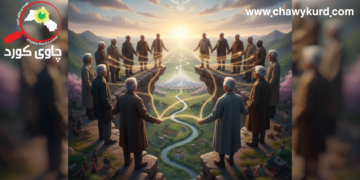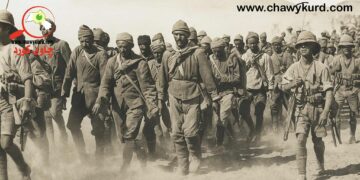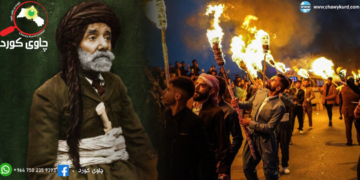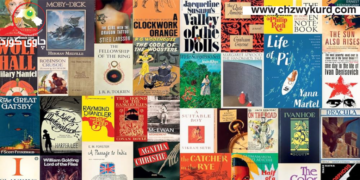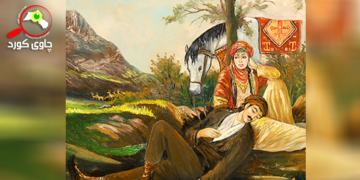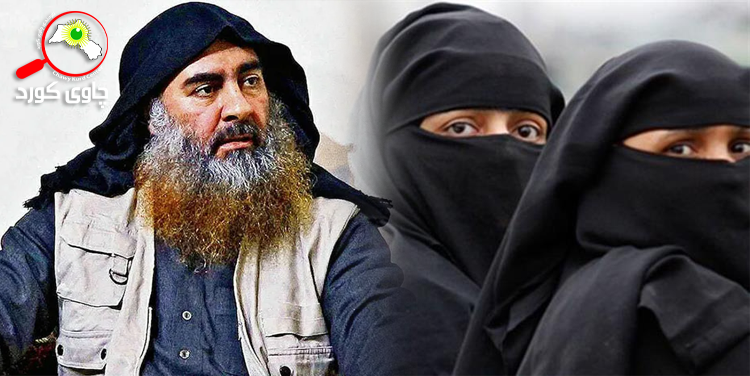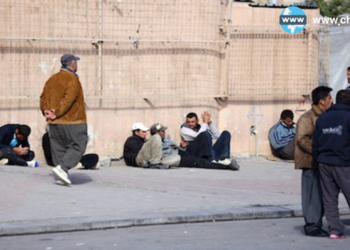Abu Bakr al-Baghdadi and his wives
It is difficult to find a meaning of a woman in any searches to the holy texts that does not bind her to sin and pleasure, or in such a way that it does not hit a mind that has a kind of deficiency and shortcomings. To be conscientious, this applies not only to sacred texts, but also to some myths that can be seen as a metaphysical-mythological definition of the world. These definitions and narratives may vary from nation to nation and culture, but they largely revolve around the two concepts of sin and pleasure. In some myths, women are given the role of actors and participants. But even from a human perspective (not a woman or a man, that is, neither from a male nor from a female perspective, we should look at the active or passive nature of the character and the presence of women, but far away from the imposed masculinity and feminine, that is, within a human egalitarian standard and as a creature with its own characteristics look at women.
The weight of the position is towards the weakness and crack of women. All the myths of creation tell us that woman is the first sinner and deceiver. Meanwhile, she led Adam into tasting the forbidden fruit and the conspiracies of the monster, obviously the myths of creation refer mainly to the Abrahamic religions. It is not surprising that the image of women in the epic of Gilgamesh (several thousand years BC) was repeated with some distortion in later influential sacred and profane texts. For example, when Enkidu descends from heaven to meet the people’s prayers and confront the aggressive and oppressive Gilgamesh, Enkidu is in some ways the counterpart of Gilgamesh, Enkidu appears as a wild beast, and then, by the knowledge of the scholar of Uruk Shamhat, is assigned to humanize Enkidu, a religious Susannah, or as the holy Susannah, or any other name commissioned to humanize Enkidu.
Therefore, at that time, more than two thousand years BC, such an image of women was defined within the framework of the body; this mythical image is reflected not only in the scriptures but also in folklore and, in other words, cultural texts. Kurdish folklore is full of praise and erotic and tender praise that traces women back to the origins of the various goddesses of the ancient world in pleasure and love. By pleasure I mean that it is also sin. Pleasure is the physical manifestation of sin and it is the definition of sin, just as love is. In this context, when we talk about pleasure, we are talking about women, sin and others. We are deluding other religious and moral ideologies that have no position. They do not accept a place for women as part of this process. Obviously, there have been complex and various changes in the original structure of the female character from the text of Gilgamesh to the sacred texts and later to the various literary works and forms and cultural structures of today; The changes, both positive and negative, have included new masks, and makeup. For example, we who grew up in a less educated Islamic society and were taught Islamic values have always maintained our dignity not only according to religious advice but also according to traditional patriarchal and masculine values. This is now both part of our consciousness and self-awareness and it fills our consciousness and soul like a stream and respect and dignity for women is more important to us than anything else. However, because of the lack of literacy or illiteracy of this society or because of part of the blind spot of political Islam and religious discourse and theft of mullahs and religious teachers and thus the exploitation of society, the majority of Muslims have views that religious movements such as ISIS and al-Qaeda are illiterate, Boko Haram, the Islamic Republic and dozens of other Muslim countries have toward women and in the history of Islam and sacred texts in some ways do not know.
In recent years, a wave of religious enlightenment, one of the most necessary waves of social awakening, rebirth and “renaissance”, has erupted, despite a number of unhealthy clashes and attacks has brought religious and secular darkness, but ultimately face criticism, It is true that at first appearance many of us may face the facts with nervousness and not accept these historical facts because our religion is a sacred religion, but gradually we will be forced to do all this and accept the factors and evidence and, finally, think about them. This thinking either leads us to change our worldview or to criticize and reform our views and worldview in any case it is still an achievement and growth. One such example is that in recent years, in the constant debate between religions and their critics, and revealed by preachers and mullahs, the Prophet (pbuh) had several concubines. Slaves as a normal subject of the life of the Muslim at that era were especially during wars and conquests. If you tell this to the illiterate Muslim old men and women in Kurdistan’s villages or cities, they may confront you and blame you.








